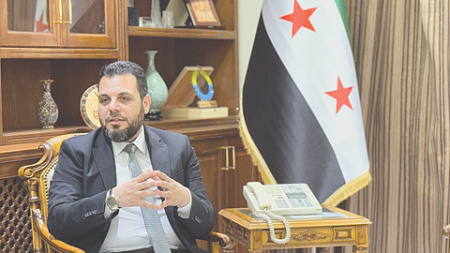
Syria’s transitional government has announced it will hold parliamentary elections in September, the first since Islamist-led forces toppled the regime of Bashar al-Assad in December 2024. While hailed as a step towards a new political era, the move is shadowed by concerns that it could cement the power of the new leadership rather than usher in a truly representative government, as observers fear the new People’s Council will be filled with loyalists to transitional President Ahmed al-Sharaa.
According to Muhammed Taha al-Ahmed, chairman of the Supreme Committee for Elections, the vote is scheduled to take place between September 15 and 20. The plan involves expanding the parliament from 150 to 210 seats and ensuring at least 20% female representation. However, a critical provision allows the president to directly appoint one-third of the members, raising immediate questions about the legislature’s independence. Officials have stated that the process will be overseen by the international community.
The election will be held under a Constitutional Declaration signed by al-Sharaa in March, which establishes a presidential system for a transitional period of up to five years. The declaration, which grounds legislation in the principles of Islamic jurisprudence (fiqh), grants the future parliament the theoretical power to impeach the head of state or limit his authority. This creates a potential check on presidential power, though its practical application remains a major uncertainty.
The decision to fast-track the elections marks a significant reversal for al-Sharaa, who as recently as December suggested a vote might be years away, pending a national census and the drafting of a new constitution. This sudden change in timetable is widely seen by Western media as a response to pressure from the United States and European nations, who have conditioned potential sanctions relief on Damascus implementing meaningful political reforms.
The announcement comes at a time of significant fragility, with the transitional government facing criticism over ongoing sectarian violence. A recent flashpoint occurred in the southern province of Suwayda, where forces aligned with the new government were accused of committing atrocities against the Druze minority during clashes between Druze militias and Bedouin groups. The violence prompted a rare intervention from Israel, a traditional protector of the region’s Druze community, highlighting the deep-seated tensions the new government is struggling to contain.
With nearly half a year passed since the change in power, Syria’s political landscape remains nascent and dominated by the Islamist factions that led the charge on Damascus. Experts question whether a genuinely competitive and inclusive election is possible under these conditions. The greatest temptation for President al-Sharaa and his inner circle will be to leverage their administrative control to engineer a loyalist parliament, an outcome that would consolidate their authority and dash hopes for a pluralistic post-Assad Syria.
